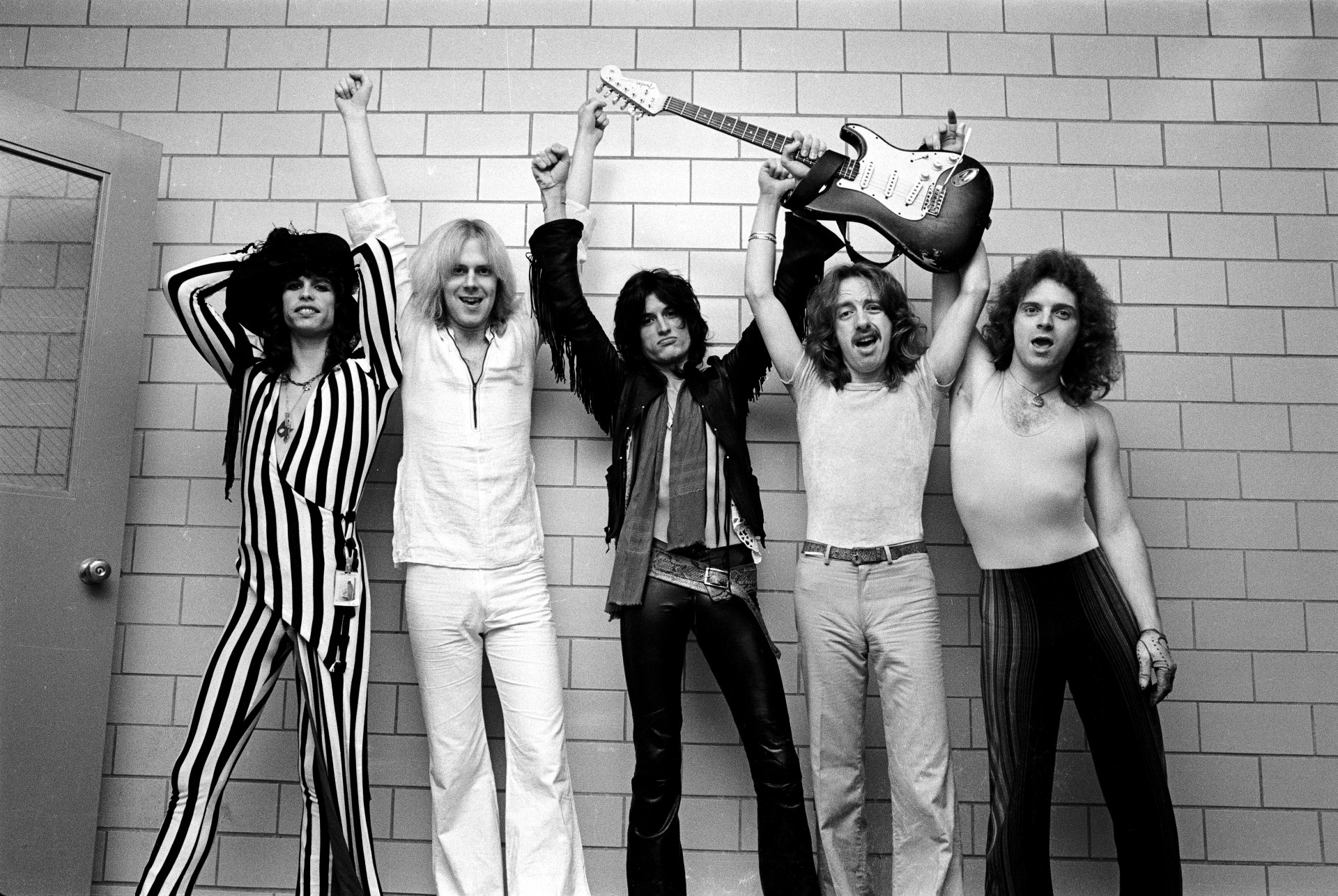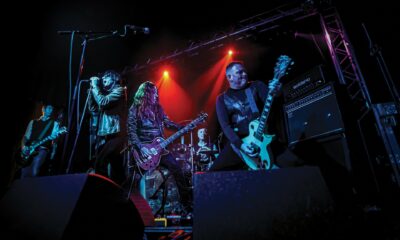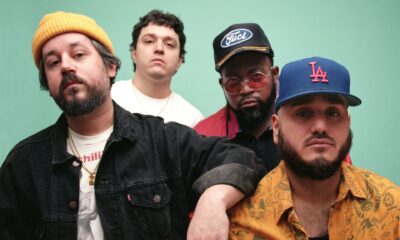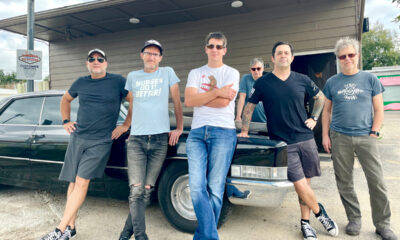Interviews
Interview with Steve Vai (Generation Axe) – March 30th, 2016

By Mike Bax
This week, a 26-date tour package called Generation Axe began in Seattle at the Paramount Theatre. Gestating from a long standing idea Steve Vai has been nurturing, Generation Axe features five revered guitarists backed by a veteran supporting band jamming together on songs from each of the artists’ repertoire, along with some classic heavy rock anthems specially orchestrated by the guitarists to highlight this special tour package.
Featuring Steve Vai, Zakk Wylde, Yngwie Malmsteen, Nuno Bettencourt, and Tosin Abasi along with a rhythm section including Pete Griffin (Dweezil Zappa, Stanley Clarke, Edgar Winter) on bass and Nick Marinovich (Yngwie Malmsteen) on keys, the ensemble, as expected, is generating plenty of hype.
The merits of Steve Vai, Zakk Wylde, Yngwie Malmsteen and Nuno Bettencourt are many. The inclusion of Tosin Abasi from Animals as Leaders (one of the more interesting guitar driven bands to break this past decade) will surely delight guitar enthusiasts across North America.
Generation Axe touches down in Toronto on May 4th at Massey Hall. There are still a few tickets available for this incredible opportunity to partake in a guitar experience unlike anything you’ve likely ever seen before.
Taking an allotment of time around their practice sessions the week before this tour started, the guitarists were conducting interviews to discuss Generation Axe. Steve Vai took some time to discuss the tour with Lithium Magazine last week.
Mike: Can you tell me how long you have known Zakk, Yngwie, Nuno and Tosin?
Steve: Tosin I’ve known for a while now. He’s part of that new movement – a sub-culture of guitar players that are doing remarkable things on the instrument. So his band, Animals as Leaders, hit the scene about four years ago and that’s when he first came on my radar and we became friends. We live near each other and we started to run into each other. He’s a wonderful guy.
Nuno, I’ve known professionally since way back, back when Extreme was starting to break. I’ve followed his career because he’s a tremendous guitar player. We never really spent time together but would always be professionally courteous. But now we’ve grown so close through this Generation Axe thing.
And Zakk – well, how do you not know Zakk? (laughs) If you’re a guitar player and spend time in this business, you are going to see Zakk. All the way back to when he first joined Ozzy’s band he was just such an interesting colour, you know? Just a very open and easy going guy. He never had a bad word to say about anybody. Whenever I would meet him it was always great. There’s always this professional courtesy that is there even if you meet somebody that you don’t necessarily know personally but they are in the business? But Zakk just makes himself totally accessible to connecting. We’ve always been friends. But now, when you get together with guys like this and you live with each other, there’s no secrets at sea. So you can bond.
Yngwie – we go back, geez, 35 years? Something like that. He was in that band Alcatrazz and when he left I wound up joining and replacing him. So we were always running into each other and we actually became friends. We’ve been supporting each other through the years, and then I toured with him on the G3 tour. And it was fantastic. Then when this came along, I reached out to him and he was really very interested. So we have all known each other, some more personally than others but now it’s a team.
Mike: How does something like Generation Axe come together? Have you been bandying this about for a while now?
Steve: Well, an idea that I had years ago was: “How great would it be to have five really great female guitar players doing all of these incredible guitar parts together on really cool songs, then making a record and touring. It was just one of those ideas I put on the shelf and then it just started jumping out at me as something that I could do. So the stars aligned and I got a call from Myles Copeland who was looking to put together something like a guitar festival. I told him my concept and we ran with it. The Generation Axe thing was more of a genre-specific kind of an idea. I created a list of all of these genres like rock, heavy metal, blues, jazz rock, fusion, acoustic and put a list together of all of my favourite guitar players that are within these. I knew it would be cool, the vision was there. I chose to do the rock/metal one first and had this beautiful list of all of these incredible metal/rock guitar players and then I started to reach out and touch base with a few of them. Oddly enough, the first five or six guys on the list were available and were eager to do it. But then it took a long time getting our schedules together, you wouldn’t believe how busy everybody is. Everybody is working on a record, laying down their guitar parts, on tour – Zakk is jumping from one tour bus to another on this thing, you know? It’s bookended. When we put the word out there to the promoters about this we got fifty-one offers in something like two days, which is unheard of. And we only had space for about 27 shows. But if it goes well and the people are enjoying it, then there is potential for more.
Mike: I think that’s a testament to your respective careers – you are putting five virtuosos on stage together like this. Who wouldn’t want to see that?
Steve: Yeah. If you love the guitar, for sure. The cool thing that we are introducing is everybody does a set of their own music for about 15 to 20 minutes, and then the real crown is when we come together as an ensemble. I’ve done so many of these kinds of jams with tons of guitar players on stage, and they are great. I thought it would be great if everything we played together was relatively arranged in really cool parts – some stacked guitar harmonies with all of these guys at their potential? I’ve never seen anything like that. So I’ve gone about and done some arrangements on some classic rock songs and we are fleshing them out right now in rehearsals. I’m not sure which ones we’ll play just yet, but really that’s the kicker. When you see these five guys up there singing on their guitars in harmony it should be a ‘whoa’ moment. I’ve never heard anything like this before. It will be like listening to a Queen record – with guitars.
Mike: Exactly. I was curious about the orchestration on this tour. You guys can all shred. But who shreds over which song, and how? What you are describing sounds pretty amazing.
Steve: I think it’s inevitable that everybody will shred at some point in the evening. Over everything. (laughs) But in an organized way, you know what I mean? We are still feeling all of that out together. It’s still evolving. Like anything, when you get out on tour you evolve. You can rehearse all you want, but when you get out on tour and are on stage, the lights are down and you’re standing up there in front of everybody, everything changes. You’ve got to really be prepared and focused.
Mike: You mentioned your rehearsals a few minutes ago. How has that been going?
Steve: Great. We just had our second day yesterday. Zakk and Yngwie come in today. We’ve got about 3 or 4 days with the whole band. It was good. Everybody needs to get their set together with the backing band.
Mike: Have you had any dialog about recording some of these shows so that fans who can’t get out to this run of dates might get to see or hear the show on DVD/Blu-ray, or as audio?
Steve: That’s always an inevitable potential. There’s a couple of venues that I looked at that might be really good to do that in. But first, I’ve learned that you want to feel everything out as you go and then all of the pieces will fall into place at the right time. So I want to get our sea legs together a little bit and then it would be nice to organize some kind of filming of it. I don’t know if it’s going to happen or not, but it sure would be great.
Mike: The elephant in the room is, of course, do you think you might do studio stuff together?
Steve: (laughs) Well, that would be lovely. I think something like that could be spectacular. It’s on the fantasy list. But you know… step by step. We want to get the songs together and get this tour on the road. Then maybe a discussion about something like that because it really would be great. But like I said, everybody’s schedules… five guys that have careers travelling the world and making records and playing with all sorts of artists, it’s a little difficult.
Mike: When I saw the press release for Generation Axe, it looked to me like something that’s going to be as much for you guys as it is for the attendees in the audiences. And I can tell already from the energy on the phone that’s how it’s going to go.
Steve: I think it will go various ways for various people. One of the things is that when you are on stage and there is an enthusiasm and you are performing and really digging it, chances are what you are feeling translates to the audience and they feel what you are feeling. Unless they are unconscious or whatever. (laughs) I think there’s going to be people there who enjoy it as much as we are. And people there who will probably enjoy it more because they are just crazy enthusiasts about the guitar. And there will be people who don’t dig it. You can’t escape it – there are critics everywhere. People will have their opinions about certain things, and that’s fine. But, we’re doing it anyway. (laughs)
Mike: Is there a song that’s come out of the rehearsals so far that you are getting excited to show fans on this tour?
Steve: Well, I don’t want to mention anything just yet because we are still fleshing it out. We have this one piece that’s over a classic song that if we can pull it off, it will be historical. (laughs) But I really don’t want to mention it yet, so sorry.
Mike: That’s totally fair. You’re the type of guitarist that legions of fans all over the world try to emulate, Steve. I’m curious if you might be able to describe what you were like as a teenager, when you were just starting out – some of the nervousness you might have had, and some of the things you were trying to figure out on the guitar.
Steve: Well, thank you. There’s basically two levels of emotional charges going on within me. Oddly enough, when I was young I was petrified of the idea of being famous. I don’t know why. I think I heard something when I was a kid that famous people go insane. (laughs) Or they are insane or something to that effect. So I knew at a young age that I didn’t want to be famous. But then, on the other side, I had this absolute enthusiasm and love for the guitar. So many people can relate to what I’m talking about – people that aren’t even professional that work and come home to spend a couple of hours here and there on the guitar. It’s just a great instrument to wrap your hands around and hear the sound coming out of. It was just such an escape for me, really. That’s all I wanted to do was just play, play, play. And I never considered myself to be any good, really. But I loved what I was doing. I never felt good enough to be a good blues player or a good jazz player or any of these things – as a result, I was developing my own style by accident because I would come across something and think, “Oh, I haven’t heard that before.” That was my juice – my Christmas morning moment, you know? Every minute coming up with something new. That was such a pay-off. I loved that. And that has been a constant in my whole career. And there have been a lot of things that have challenged me to gain access to that feeling, you know? Fame can do that sometimes. Money can do that. But chasing that feeling has always been paramount, and still is to this day.
That’s why things like Generation Axe can come together. Because I can SEE it. I don’t know how much money it’s going to make. I don’t know what people are going to think. But I know that the vision is solid and all it really has to do is be cool to you. That’s how I move. I find things that I feel enthusiastic about and that’s the way I was when I was a kid. I just loved, loved, loved listening to Queen and Led Zeppelin, Deep Purple and Kiss and Aerosmith and Emerson Lake and Palmer and Alice Cooper. That was where I was coming from. But at the same time I was listening to compositional music like Glenn Gould, Leonard Bernstein and Frank Zappa – all of that kind of stuff. So I was a funny teenager in that I had a really quirky sense of humour. (laughs) I had a lot of friends – all of the different groups – the jocks and the brainiacs. I loved going to school and being with people. I didn’t like school but I liked being there. And everything was about playing the guitar, man. It’s funny, I was talking to my wife just this morning about this. I would get into fights with people about Led Zeppelin. There was one contingent that liked the Rolling Stones, right? And I just never got the Stones when I was a kid, you know? It was just poser music to me. That’s the way I felt when I was a kid, anyway. You are very passionate then. Of course, I have an understanding and respect for them now, but it was just so much fun to love the bands that you loved as a kid. And then to go to the concerts because you’d know they were coming to town. You’ve got to remember that back then we didn’t have any access to anything. There was no Internet. There were very few shows on TV where you could actually SEE David Bowie or any of these guys. It was so exciting. That was the Steve Vai back then.
Mike: What do you find yourself doing, besides this incredible Generation Axe tour package, to keep yourself current as a player, Steve?
Steve: Well, I don’t make it a conscious effort to keep myself current in the realms of trends or the things that other people are doing. I use those things as inspiration. So that’s one way. I look out into the world and see what other cool and really interesting things people are doing and then I use that to inspire myself to go a little deeper into my own kind of creative instincts. And the thing that I find most inspirational is just a good idea. When something hits you and you get that ‘AHA’ moment – you just want to do it. That’s really it. My favourite thing to do is to pick up the guitar and think of something that I can’t do, and then work on it until I can do it. That is to me, still today, the biggest payoff more than anything. Of course, there is personal stuff. But as far as me in the creative world, what I’m contributing, I’ve found it and I love it. And there is many of the things that I do – it’s only your own perspective on what you do that will bring you either stress or joy. (chuckles)
Mike: I’m a Public Image Ltd fan, Steve. The album you guitared on in 1986 is one of my favourites. Could you quickly talk about how that opportunity arose and your memories of doing it?
Steve: Yeah, sure. I was in Alcatrazz at the time. But I had a history with a dear friend, Cliff Cultreri from Important Records, and then Relativity Records. He was good friends with Bill Laswell who was producing the Public Image record. So Bill called me and asked me if I wanted to come in and do the guitars on this record. Of course I wanted to do it. I love that band. I love John Lydon and all of the stuff that he does.
I got the tapes and I was on tour at the time so I could only visit the studio for two and half days. So I did all of the guitars that I contributed to that album in two half-day sessions and it was such a great experience because I didn’t have to think about anything. I didn’t have to arrange anything. I didn’t have to write the songs. I just decorated them with what I do. As such, it was just a pleasure, you know? And Lydon, he knows how to embrace the abstract in a controlled way. So I knew that what I could contribute would work because I’m pretty abstract too, you know? And he just loved it. I learned a lot from that project. And I’m really happy with the way it came out with my contribution to it.
www.vai.com
www.facebook.com/stevevai
twitter.com/stevevai
generationaxe.com/
-

 Music6 days ago
Music6 days agoTake That (w/ Olly Murs) Kick Off Four-Night Leeds Stint with Hit-Laden Spectacular [Photos]
-

 Alternative/Rock7 days ago
Alternative/Rock7 days agoThe V13 Fix #010 w/ High on Fire, NOFX, My Dying Bride and more
-

 Alternative/Rock2 weeks ago
Alternative/Rock2 weeks agoA Rejuvenated Dream State are ‘Still Dreaming’ as They Bounce Into Manchester YES [Photos]
-

 Features6 days ago
Features6 days agoTour Diary: Gen & The Degenerates Party Their Way Across America
-

 Culture1 week ago
Culture1 week agoDan Carter & George Miller Chat Foodinati Live, Heavy Metal Charities and Pre-Gig Meals
-

 Music1 week ago
Music1 week agoReclusive Producer Stumbleine Premieres Beat-Driven New Single “Cinderhaze”
-

 Alternative/Rock1 week ago
Alternative/Rock1 week agoThree Lefts and a Right Premiere Their Guitar-Driven Single “Lovulator”
-
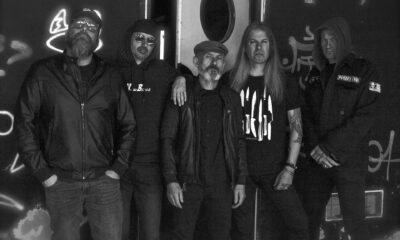
 Alternative/Rock2 weeks ago
Alternative/Rock2 weeks agoDeath Wishlist Are Fiery and Fierce with Their “I Get Bored” Video Premiere

